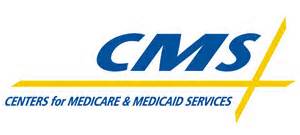Home Health Care Policies- On Monday, CMS (Centers for Medicare and Medicaid Services) published a new proposal aimed toward boosting incentives in order to improve the success of the Accountable Care Organizations (ACOs).
The proposal outlines changes that would improve the Medicare Shared Savings Program policies by targeting specific areas of the program including: compliance, participation agreement renewals, data sharing, and beneficiary assignments.
These changes come as an attempt to boost the success rates providing seniors with affordable and high quality care when utilizing Medicare Shared Savings Program ACOs.
Excerpt of the proposal from CMS.gov:
Proposal: We propose rules for the review and approval of participation agreement renewal requests, taking into account such things as the ACO’s history of compliance with the requirements of the Shared Savings Program and the ACO’s history of meeting the quality performance standard during the first 2 years of program participation. Additionally, we propose to permit ACOs to participate in one additional agreement period under Track 1, but at a lower sharing rate than the previous agreement period to encourage progression along the performance risk continuum. This policy would be available to ACOs that have met the quality performance standard in at least one of the first two years and have not generated losses that exceed the negative minimum savings rate (MSR) in both of the first two years of the previous agreement period.
Since the Shared Savings Program currently has over 330 ACOs nationwide, Shared Savings ACOs have provided care to close to five million beneficiaries in Medicare fee for service and have kept spending below their benchmarks by $705 million. During that time, they have earned shared savings payments of over $315 in the first year alone.
CMS Administrator Marilyn Tavenner remarked in a statement, “This proposed rule is part of our continued commitment to rewarding value and care coordination – rather than volume and care duplication,” and “We look forward to partnering with providers and stakeholders to continuously refine and improve the Medicare Shared Savings program.”
The proposal will be open for a 60-day comment. More details from the proposal below:
Encouraging ACOs to take on greater performance based risk
Background: We seek to encourage ACOs to progress along the performance risk continuum. Based on comments from stakeholders, we believe certain aspects of the Shared Savings Program could be improved to increase interest in performance risk-based options.
Proposal: We seek comment and propose a number of modifications including:
- Proposing to implement an additional performance risk-based model (Track 3) for ACOs to participate in the Shared Savings Program. Track 3 would offer a higher sharing rate than Tracks 1 and 2 and would prospectively assign beneficiaries to the ACO rather than preliminarily assigning beneficiaries to ACOs and then doing a retrospective reconciliation.
- Proposing to modify Track 2 to increase its attractiveness by making the minimum savings and loss rates variable rather than the current flat 2 percent.
- Seeking comment on what other design elements would be necessary for organizations to consider taking on greater financial risk, including options to:
- Augment the current assignment methodology by including beneficiaries on the assignment list when the beneficiary attests that a practitioner participating in the ACO is responsible for his or her care coordination.
- Waive certain FFS payment and regulations related to qualifying hospital stays for SNF admission, telehealth, qualifications for home health services, and qualifications for post-acute referrals.
Eligibility Requirements
We propose several minor modifications to the eligibility requirements for ACO participation including:
- requirements related to the agreements the ACOs have with Medicare enrolled entities (that is, ACO participants as defined in the program rules)
- governing body and leadership requirements - for example, currently, the ACO’s medical director is required to be an ACO provider/supplier. We propose to remove this requirement to permit more flexibility.
- the process the ACO has for coordinating care, requiring ACOs to articulate how they will encourage and promote the use of enabling technologies for improving care coordination, and
- a more streamlined process to allow prior Pioneer ACOs to apply for program participation.
The 60-day comment period closes on February 6, 2015, and we encourage all interested members of the public to submit comments.




